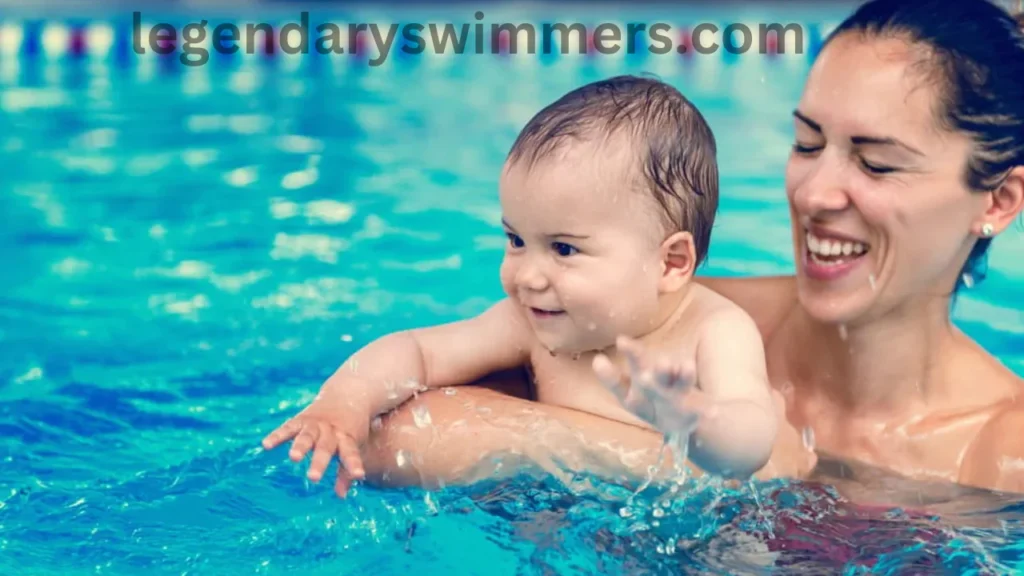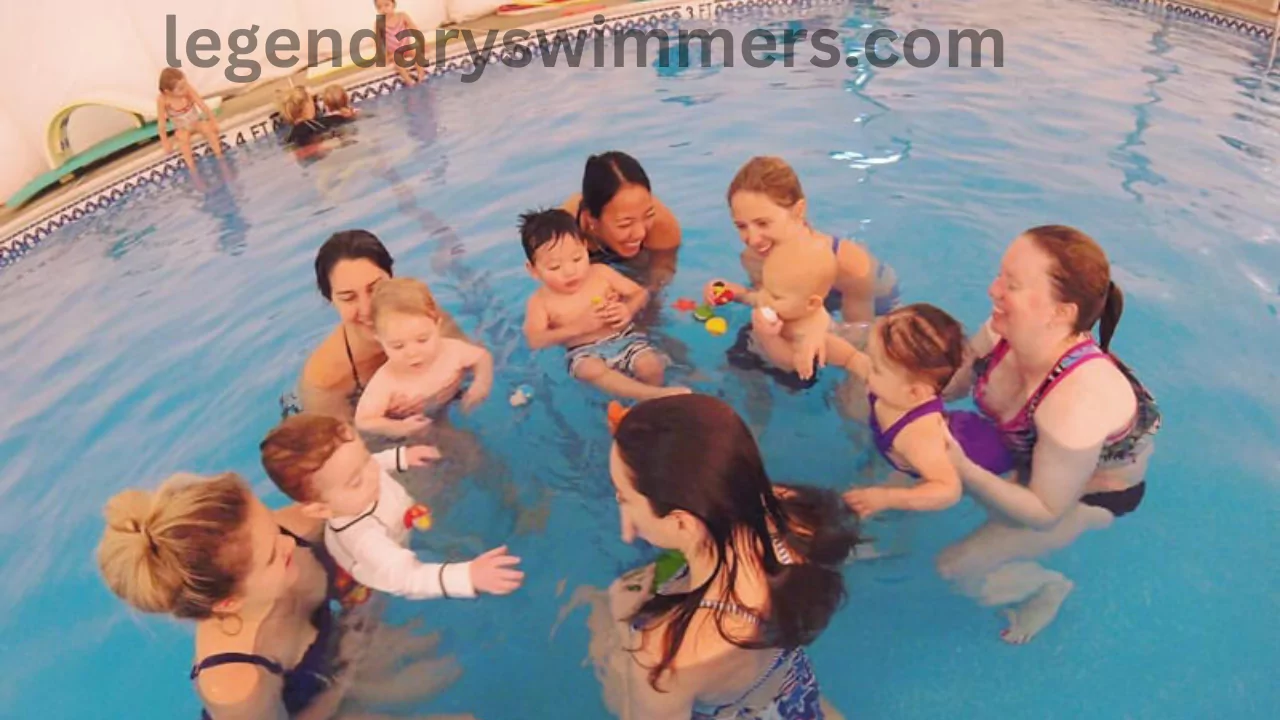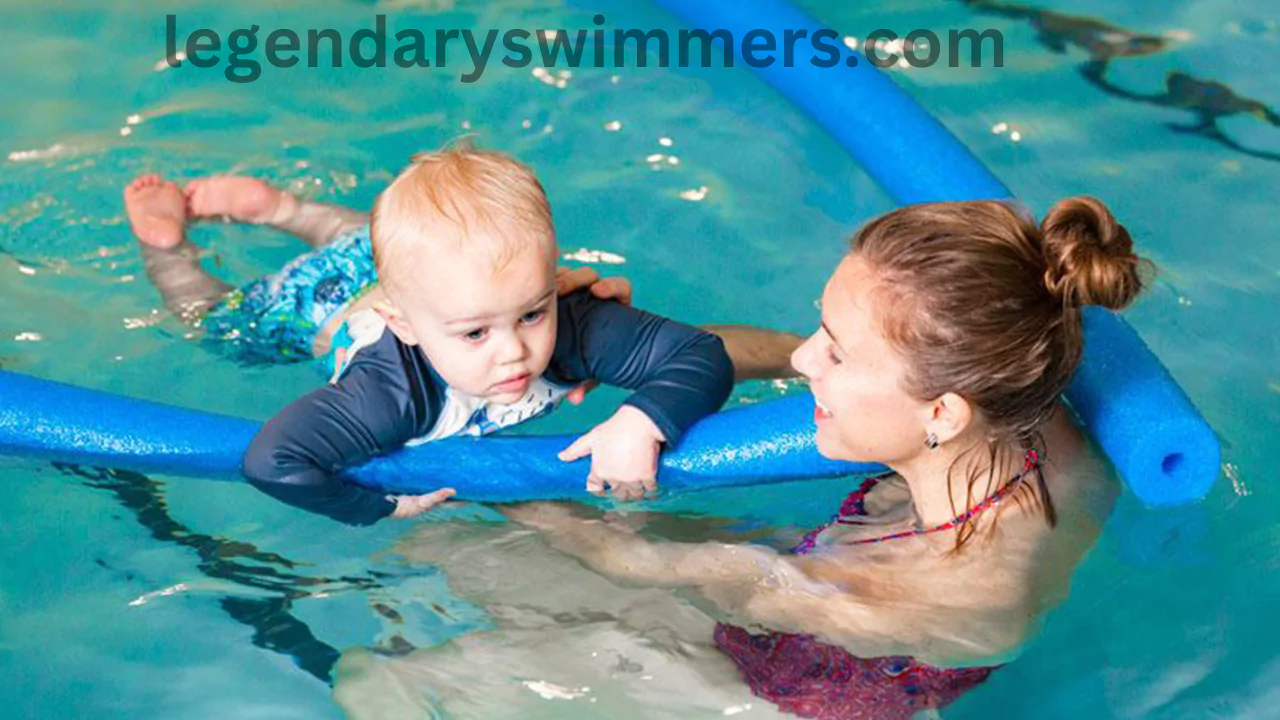
Infant Swimming: Pros, Cons, and Worth Considering
- Updated:
Infant swimming, or “survival swimming,” is becoming more popular. Parents want to teach their babies water safety and help them grow. But what are the benefits and risks of introducing water activities at such a tender age? This article delves into the pros and cons of infant swimming, offering essential guidance for parents to make well-informed decisions.
What Is Infant Swimming?
Infant swimming involves organized classes aimed at babies typically between 6 months and 18 months old. These sessions are designed to make infants comfortable in water, emphasizing safety and early learning rather than teaching them to swim independently. Such programs are gaining traction, spurred by parents’ increasing awareness of water safety and a drive to boost early development.
American Red Cross Scientific provides insights into the appropriateness of introducing swimming based on developmental readiness, stressing the importance of individualized
Why Do Parents Choose Infant Swimming?

Parents are increasingly drawn to infant swimming lessons for various reasons, ranging from water safety education to developmental benefits.
Safety Awareness
A primary motivation is water safety. According to the Centers for Disease Control and Prevention (CDC), drowning is the leading cause of injury death for young children ages 1 to 4, and the second leading cause for children from 1 to 14 years. Introducing babies to water early may significantly reduce this risk. Teaching basic water awareness skills at a young age can foster a lifelong respect for water safety. Expert swimming organizations suggest that early aquatic experience can help develop a natural comfort around water, reducing panic if they find themselves in a water-related accident.
Water Comfort
Many parents believe that the earlier babies are introduced to water, the more comfortable they will be as they grow older. Familiarity with the water from an early age can help prevent future fear or resistance to swimming.
Early Learning Opportunities
Infant swimming offers an exciting sensory experience that may enhance early cognitive development. The Australian Journal of Science and Medicine in Sport reported that children who engage in early swimming achieve several developmental milestones faster, particularly those related to fine motor skills, like gripping and reaching, as well as some gross motor skills. These children also show better balance and manual dexterity at a younger age. The sensory-rich environment of water helps stimulate brain development, enhancing problem-solving skills and sensory integration.
Pros of Infant Swimming
Early Development of Motor Skills
One key advantage of infant swimming is that it promotes motor skills. Water provides a low-resistance environment where babies can move their arms and legs freely, helping develop coordination and balance.
Swimming engages multiple muscle groups simultaneously, contributing to full-body movement and strength development. The constant motion encourages improved muscle control and flexibility, even at a young age.
Cognitive Benefits
Water-based activities can stimulate a baby’s cognitive development. Sensory experiences in the water help stimulate brain activity by enhancing problem-solving skills and emotional regulation. The dynamic environment of a swimming pool offers a variety of sensory inputs—temperature changes, water resistance, and buoyancy—that can positively affect a baby’s brain development.
Water Safety and Drowning Prevention
Drowning prevention is a critical aspect of infant swimming lessons. The CDC reports that formal swimming lessons can reduce the risk of drowning by as much as 88% among children aged 1 to 4 years. Through swimming lessons, infants learn vital water safety skills such as floating, turning onto their backs, and moving towards the pool’s edge, which can be lifesaving in emergencies.
Parent-Child Bonding
Infant swimming offers a unique opportunity for bonding between parent and child. The physical closeness and trust required during the lessons help foster a stronger emotional connection. This shared activity encourages babies to feel secure and confident while being supported by their parents in the water.
Socialization Opportunities
Group swim classes provide skill development and socialization opportunities for infants. These classes allow infants to see, interact, and learn from their peers and instructors, which is beneficial for their social development. According to research published by the National Institutes of Health, early social interactions can influence children’s long-term social skills.
Cons of Infant Swimming
Safety Concerns and Risks
While the water safety benefits for infants are notable, the risks in public pools can’t be overlooked. These pools might expose infants to pathogens that can cause skin and respiratory infections. The Centers for Disease Control and Prevention (CDC) discusses strategies to prevent recreational water illnesses, emphasizing the importance of maintaining proper pool hygiene and water quality.
Additionally, water inhalation and the rare but serious risk of secondary drowning highlight the need for careful supervision by trained professionals during swimming lessons.
Potential Overstimulation
For some babies, swimming lessons can be overwhelming. The combination of unfamiliar sounds, new movements, and multiple sensory inputs might lead to overstimulation. To avoid this, parents should observe their baby’s behaviour during lessons and take breaks when necessary. Gentle exposure and gradual immersion in water activities can help prevent overstimulation.
Cost and Accessibility
Swimming lessons can be a significant financial commitment, especially when factoring in the cost of gear such as swimsuits, swim diapers, and water toys. Additionally, not all areas offer high-quality infant swimming programs, limiting access for some families.
Not Suitable for All Infants
Not all babies may be ready for the water, and some may express discomfort or fear during lessons. Parents should assess their baby’s temperament and comfort level with water-based activities before enrolling in lessons. If a baby is consistently distressed, it may be better to wait until they are older and more receptive.
Is Infant Swimming Worth It?
How to Decide if Infant Swimming Is Right for Your Baby
Before beginning swimming lessons, parents should consider several factors to ensure it’s a beneficial experience for the child:
- Comfort in Water: Assess whether the infant is comfortable in water settings, which can indicate readiness for swimming lessons.
- Parental Commitment: Evaluate if the family schedule allows for the consistency required for beneficial swim lessons.
- Qualified Instructors: Ensure the instructor has specialized training in infant swimming to provide the safest and most effective learning environment.
Many parents find that the long-term benefits of infant swimming, such as increased water confidence and early development of motor and cognitive skills, outweigh the cons. The added peace of mind that comes with water safety knowledge can make it worthwhile.
Scenarios Where It Might Not Be Worth It
- Lifestyle and Budget Constraints: If regular attendance at swimming lessons conflicts with other family commitments or if the financial investment is a concern, it might be prudent to delay starting swimming lessons.
- Child’s Discomfort or Fear: Some children may show signs of fear or discomfort in the water. In these cases, it’s advisable to wait until the child is older or shows more readiness for water-based activities.
- Health Concerns: In some instances, health considerations such as ear infections or other medical advice might suggest postponing swimming lessons.
How to Choose the Right Infant Swimming Program
When selecting a program, ensure the instructor is certified in infant swimming instruction and has experience working with babies. The instructor should have a gentle, patient approach and understand the unique needs of infants in water-based activities.
Choosing Between Group and Private Classes
Both group and private lessons have their pros and cons. Group lessons offer socialization opportunities and may be more affordable, while private lessons provide individualized attention.
Here’s a table that compares the benefits and considerations of group and private lessons and highlights the importance of class size in infant swimming programs:
| Type | Benefits | Considerations |
|---|---|---|
| Group Lessons | – Promotes socialization through peer interaction. – More affordable. – Encourages the development of communication and social skills, as supported by the CDC. |
Suitable for infants who are comfortable in group settings. |
| Private Lessons | – Tailored experience with individual attention. – Ideal for infants needing more time to adjust to water or those with specific needs. |
Typically more expensive than group lessons. |
| Class Size | – Smaller class sizes ensure more personalized attention and instruction. – Enhances safety and effectiveness of the learning experience. |
It is important to choose programs that maintain small class sizes to benefit each infant. |
Pool Safety and Hygiene Standards
It’s crucial to ensure that the pool facility adheres to high safety and hygiene standards. Check the cleanliness of the pool and the facility’s safety measures. Proper chlorine levels and maintenance help prevent the spread of infections. Regular checks of water quality should be a standard practice at any swimming facility. This helps in preventing the spread of infections and ensures a healthy environment for infants.
How to Prepare Your Baby for Infant Swimming Classes

Essentials include swim diapers, towels, a change of clothes, and water-safe toys to make the experience enjoyable for your baby.
Tips for First-Time Swimmers
Introduce your baby to water in a relaxed environment at home, such as during bath time. This can help them become comfortable with water before their first lesson. Gradual exposure is key.
What Parents Should Expect During Lessons
A typical infant swimming lesson includes guided floating, gentle kicking, and water play. The goal is to familiarize your baby with water, not to push them into swimming independently. Patience and positive reinforcement are essential throughout the process.
Common Myths About Infant Swimming
Myth: Babies Can Learn to Swim on Their Own
Although babies can float and move in water, they cannot swim independently. Constant supervision is necessary, even for babies who have completed swimming lessons.
Myth: All Babies Will Love Swimming
Not all babies enjoy water-based activities. Each child is different, and it’s important not to force a baby into swimming if they are uncomfortable.
Myth: Infant Swimming Is Only About Water Safety
While water safety is a significant aspect of infant swimming, the activity also offers developmental, cognitive, and bonding benefits.
FAQs
Q: How Early Can You Start Infant Swimming?
A: Most experts recommend starting infant swimming between 6 months and 18 months, depending on the baby’s comfort level and readiness.
Q: How Long Should Infant Swimming Lessons Be?
A: Lessons typically last between 20 to 30 minutes to prevent overstimulation and exhaustion.
Q: Why Are Swim Diapers Important?
A: Swim diapers help maintain hygiene in public pools by preventing accidents. They are an essential item for infant swimming classes.
Q: How Can I Tell If My Baby Is Ready for Swimming?
A: Signs of readiness include comfort in water play during baths and a generally positive reaction to water-based activities.
Q: Can Infant Swimming Improve Sleep?
A: Physical activity, such as swimming, can help improve a baby’s sleep by promoting relaxation and reducing stress.
Conclusion
Infant swimming can offer a range of benefits, from improved motor skills to enhanced water safety awareness. However, before committing to lessons, it’s essential to consider your baby’s readiness, your family’s schedule, and the availability of quality programs in your area.
At Legendary Swimmers Academy, we welcome infants starting at 8 months old. Our programs are designed to safely introduce young swimmers to the water, ensuring a fun and supportive environment for your little one to start their aquatic journey.
References
- Centers for Disease Control and Prevention
- Australian Journal of Science and Medicine in Sport
- American Red Cross
Recommended Products
 Lightweight Aquatic Exercise Dumbells – Set of 2 Foam – for Water Aerobics – By Trademark Innovations
Lightweight Aquatic Exercise Dumbells – Set of 2 Foam – for Water Aerobics – By Trademark Innovations
 Simple Joys by Carter’s Boys’ 2-Pack 1-Piece Zip Rashguards
Simple Joys by Carter’s Boys’ 2-Pack 1-Piece Zip Rashguards

Natasha Nicole Leyva
Hi, I’m Natasha—swimmer, coach, and aquatic fitness enthusiast. My journey began in New Zealand after a professor recommended swimming to help with a knee injury. The low-impact nature of swimming worked wonders, and it quickly became my favorite form of exercise. This passion grew into a thriving swim academy, and soon, requests for aquatic fitness classes started pouring in. After becoming certified, I realized how powerful water workouts could be for recovery and fitness. Now, I share my expertise here to help others experience the benefits of aquatic movement—whether for recovery, fitness, or fun!

 green sprouts Baby Flap Sun Protection Swim Hat
green sprouts Baby Flap Sun Protection Swim Hat




